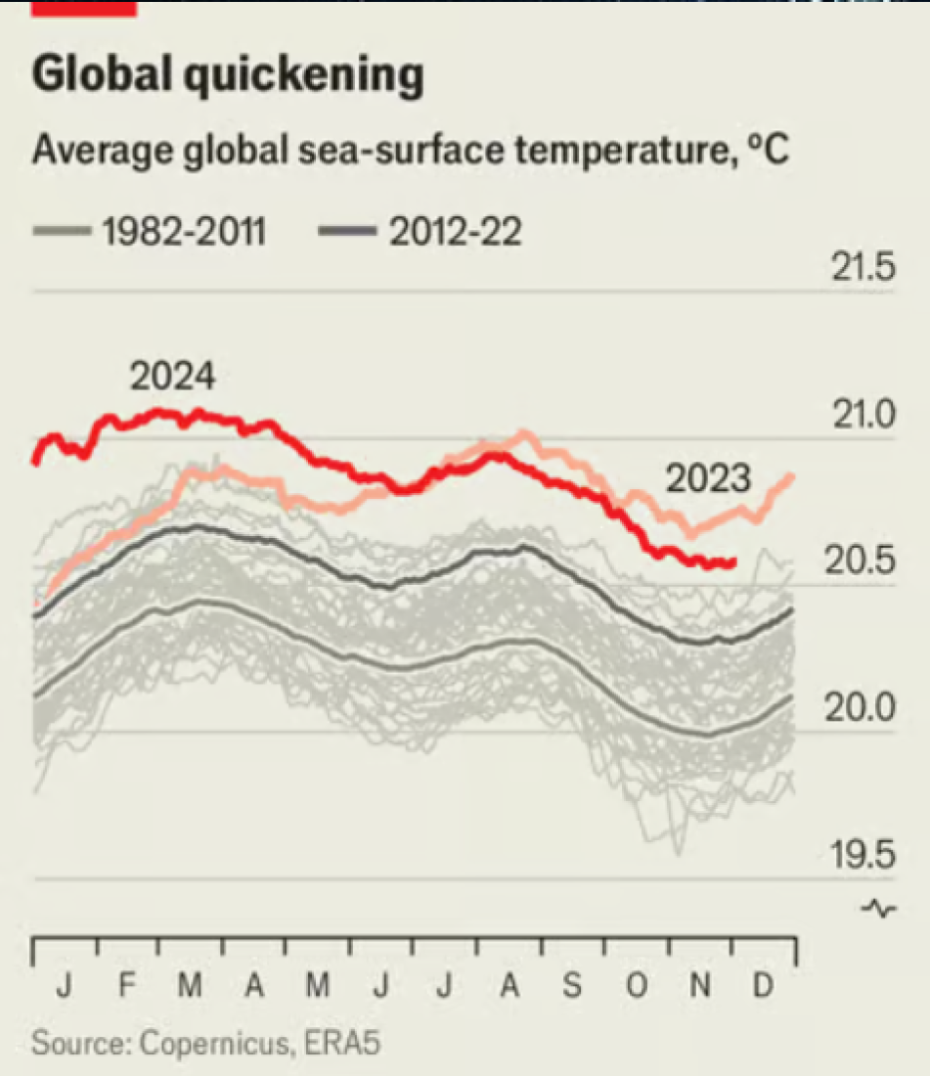U.S. Secretary of State Rubio says U.S. and Europe 'belong together' at Munich Security Conference
“The United States and Europe, we belong together,” Marco Rubio declared on the second day of the Munich Security Conference on Saturday (14 Febru...
2023 defied climate expectations. It wasn’t just hotter than predicted — it was strangely hot. Now, scientists are piecing together what caused this anomaly, raising fresh concerns about Earth’s climate systems.
Gavin Schmidt, NASA’s top climate modeller at the Goddard Institute for Space Science, admitted to feeling “humbled” by 2023’s extraordinary temperatures. Writing in Nature earlier this year, Schmidt noted that the year was warmer than models anticipated. The deviation, unexplained at first, sparked worries that climate change is entering uncharted territory.
At December’s American Geophysical Union (AGU) meeting, the world's largest Earth science conference, experts revisited the mystery. Like detectives solving a case, scientists meticulously ruled out some “suspects” while identifying others.
Key Suspects Behind the Heat Surge
El Niño
The natural El Niño event, which warms the tropical Pacific, began in 2023, contributing to global temperatures. Yet the warming exceeded even El Niño’s usual influence, raising eyebrows.

Cleaner Air from Shipping
New rules to reduce sulphur in ship fuel have lowered pollution levels. However, cleaner air allows more sunlight to reach the ocean surface, which adds to global warming.
Volcano and Solar Activity
The Hunga Tonga eruption in 2022 injected water vapour into the atmosphere but also sulphates, which slightly cooled the Earth. Meanwhile, the Sun reached its peak activity cycle, contributing minimal extra heat.
Cloud Cover Changes
Research by Germany’s Alfred Wegener Institute found Earth reflected less sunlight in 2023 — its dimmest year yet. Reduced cloud cover, particularly over northern mid-latitudes, amplified warming. Cleaner air may have played a role, alongside long-term climate shifts that are altering cloud patterns.
The Bigger Picture
Global warming is accelerating. Some scientists argue that the drop in sulphur emissions is now speeding up heating, while changing cloud dynamics add to the uncertainty.
What’s Next
GISS modellers are now combining the latest data on sulphur emissions, cloud dynamics, and sunlight reflectivity into updated climate simulations. Schmidt expects these runs to clarify the contributions of various factors and potentially reshape projections for Earth’s future.
The findings are clear: warming is unlikely to slow any time soon.
Europe heads into the Munich Security Conference, on Friday (13 February), amid deepening unease over U.S. policy, as President Donald Trump’s hard-line stance on defence, trade and territory fuels doubts about Washington’s long-term commitment to transatlantic security.
American figure skating star Ilia Malinin endured a dramatic collapse in the men’s free skate on Friday night, falling twice and tumbling out of medal contention at the Milan Cortina Winter Olympics as Kazakhstan’s Mikhail Shaidorov surged to a surprise gold medal.
“Respected and feared globally,” U.S. President Donald Trump told troops at Fort Bragg on Friday, framing America’s renewed strength as a backdrop to mounting pressure on Iran amid stalled nuclear talks.
Dubai-based global ports operator DP World said on Friday that its long-serving chairman and chief executive, Sultan Ahmed Bin Sulayem, has stepped down following mounting pressure linked to alleged ties to disgraced financier Jeffrey Epstein.
Azerbaijan’s State Security Service has filed charges against a group of people accused of belonging to a criminal network alleged to have attempted to forcibly seize state power. It's claimed they tried to alter the constitutional structure, with the support of foreign intelligence agencies.
The administration of U.S. President Donald Trump on Thursday (12 February) announced the repeal of a scientific finding that greenhouse gas emissions endanger human health, and eliminated federal tailpipe emissions standards for cars and trucks.
Tropical Cyclone Gezani has killed at least 31 people and left four others missing after tearing through eastern Madagascar, the government said on Wednesday, with the island nation’s second-largest city bearing the brunt of the destruction.
Rivers and reservoirs across Spain and Portugal were on the verge of overflowing on Wednesday as a new weather front pounded the Iberian peninsula, compounding damage from last week's Storm Kristin.
Morocco has evacuated more than 100,000 people from four provinces after heavy rainfall triggered flash floods across several northern regions, the Interior Ministry said on Wednesday.
Greenland registered its warmest January on record, sharpening concerns over how fast-rising Arctic temperatures are reshaping core parts of the island’s economy.
You can download the AnewZ application from Play Store and the App Store.

What is your opinion on this topic?
Leave the first comment